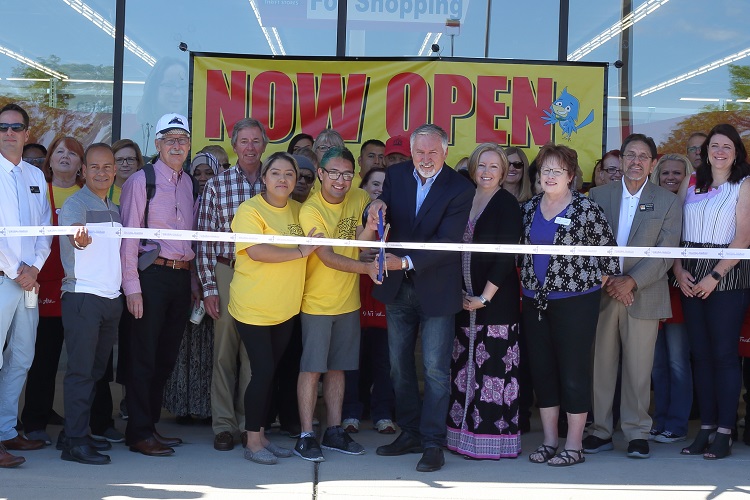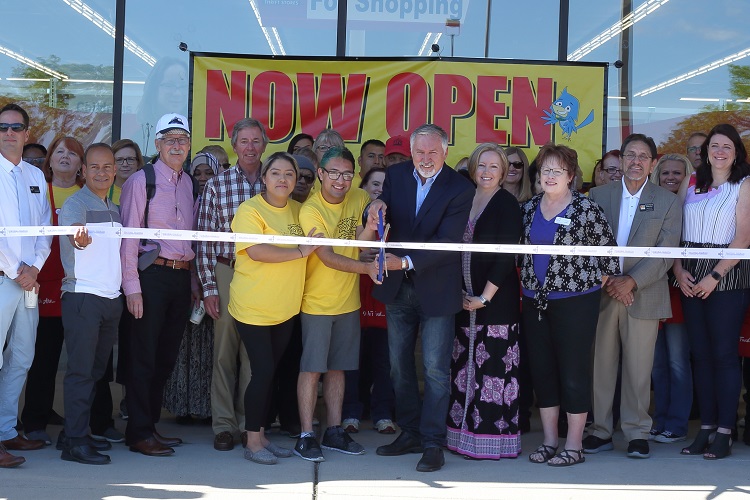The Economic Impact of arc Thrift Stores on Colorado
A new report estimates that arc’s total economic impact between 2005 and 2019 is $2.3 billion
Ali Longwell //July 22, 2019//


The Economic Impact of arc Thrift Stores on Colorado
A new report estimates that arc’s total economic impact between 2005 and 2019 is $2.3 billion
Ali Longwell //July 22, 2019//

arc Thrift Stores was founded in Colorado over fifty years ago, and in the years since it has grown to have both direct and indirect social and economic impacts of the state.
The nonprofit thrift store chain was founded in 1968, and has 30 locations in metro Denver, Fort Collins, Greeley, Loveland, Colorado Springs and Pueblo. Each year it receives nearly 10 million pounds of donations. Sales from arc thrifts’s store-fronts are reallocated through its Arc chapters and the Association for Community Living and Advocacy Denver. arc’s funding and support of these organizations are all meant to support its overarching mission.
“From employment to the Arc Academy, all roads lead to enhancing the lives of people with intellectual and developmental disabilities,” says Lloyd Lewis, president and CEO of arc Thrift Store, adding that arc thrift is one of the state’s largest employers of people with intellectual and developmental disabilities (IDD). 300 of its 1,700 employees have some IDD.
Not only that, but arc thrift is one of the state’s largest recyclers, Lewis says, who says the organization keeps over 100 million pounds of donations out of the landfill each year. This equates to $37 million worth of landfill savings, according to a new study from the University of Denver.
“We know that Coloradans especially care about where they spend their money,” Lewis says. “Right now people care more and more about the environment and buying second hand is truly something that drives many people in our state. The icing on the cake is that they are also supporting a nonprofit that helps people with disabilities right here in their state.”
In 2005, Lewis was named as CEO of arc thrift and appointed a new leadership team to drive the organization forward. Previously, he was the chief financial officer at a tech company, but following the birth of his son, Kennedy, who was born in 2003 with Down Syndrome, he threw himself toward scientific research advocacy for Down Syndrome. This led him to join the Arc of Colorado board of directors and eventually become the CEO.
In order to understand the economic impact of this organization on the state during the 14 years since Lewis’ appointment, students at Daniels School of Business at the University of Denver conducted a study during a capstone course completed an economic impact assessment of the company from 2005 to 2019.
Direct Economic Impact
In the years between 2005 and 2019, arc thrift grew its operations by 75%, increased its employees by 250% and its number of IDD employees by 2,000%.
According to the study, during the 14 years, it earned a cumulative revenue of $797 million, resulting in a total economic impact $1.6 billion from revenue and $700 million from employee expenses. Over these years, it also contributed $91 million to the Arc Advocacy Chapters. There are 15 chapters in the state and 14 local chapters that provide advocacy services for IDD children and adult within their service areas.
The report estimates that the total economic impact between 2005 and 2019 is $2.3 billion.
According to Lewis, one of the ways that arc thrift has been able to grow and make this impact is “because we run our thrift stores like a retail business,” Lewis says. “We manage the numbers and insist on accountability from all levels of our organization and this makes our operation second to none.”
Aside from its contributions to its own charities, arc thrift supported or was part of a number of additional charitable events and charities. This includes the Feed Colorado Campaign; an auto donation program; fundraising with Girl Scouts of America, Jeffco School district, Special Olympics, The Cystic Fibrosis foundation and more; and support of Ability Connections.
Indirect Economic Impact
arc thrift has not only driven its impact through its business operations, but also through its participation in lobbying activities for legislation, public policy and self-determination.
This lobbying, says Christiano Sosa, executive director of the Arc of Colorado, “allows members of the intellectual and developmentally disabled community to experience the world with respect, equality, safety and security accorded to all other members of society, and equal before the law.”
The study also looked at this impact and found that it supports 35 to 45 bills annually and since 2016, has identified 56 pieces of legislation that is has sponsored or supported through lobbying and education.
According to the report, 19 bills were evaluated that represented major initiatives and that these resulted in $118 million in state expenditures to improve the lives of those with IDD.
Lewis says that overall with its work its impact has “proven that you can be a nonprofit, help the community, give back along the way and be successful.”



























